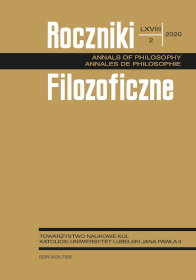Cartesian Social Epistemology? Contemporary Social Epistemology and Early Modern Philosophy
Abstract
Many contemporary social epistemologists take themselves to be combatting an individualist approach to knowledge typified by Descartes. Although I agree that Descartes presents an individualist picture of scientific knowledge, he does allow some practical roles for reliance on the testimony and beliefs of others. More importantly, however, his reasons for committing to individualism raise important issues for social epistemology, particularly about how reliance on mere testimony can propagate prejudices and inhibit genuine understanding. The implications of his views are worked out more fully by some of his immediate successors; I examine how François Poulain de la Barre, and (briefly) Mary Astell analyze the social conditions for epistemic agency in a Cartesian vein.
References
Astell, Mary. 2002. A Serious Proposal to the Ladies: Parts I and II. Edited by Patricia Springborg. Peterborough: Broadview Press.
Coady, C. A. J. 1994. Testimony: A Philosophical Study. Oxford: Oxford University Press.
Descartes, René. 1996. Oeuvres de Descartes. Edited by Charles Adam and Paul Tannery. New edition. 12 vols. Paris: J. Vrin. Cited as AT, followed by volume and page.
Descartes, René. 1984–91. The Philosophical Writings of Descartes. Translated by John Cottingham, Robert Stoothoff, Dugald Murdoch, and Anthony Kenny. 3 vols. Cambridge: Cambridge University Press. Cited as CSM, followed by volume and page.
Descartes, René, and Princess Elisabeth. 2007. The Correspondence between Princess Elisabeth of Bohemia and René Descartes. Translated and edited by Lisa Shapiro. Chicago: University of Chicago Press. Cited as Shapiro, followed by page number.
Garber, Daniel. 2001. Descartes Embodied. Cambridge: Cambridge University Press.
Gewirth, Alan. 1943. “Clearness and Distinctness in Descartes.” Philosophy 18:17–36.
Goldberg, Sanford. 2007. Anti-Individualism: Mind and Language, Knowledge and Justification. Cambridge: Cambridge University Press.
Goldman, Alvin. 2009. “Social Epistemology: Theory and Applications.” Epistemology 64:1–18. Goldman, Alvin, and Cailin O’Connor. 2019. “Social Epistemology.” In The Stanford Encyclopedia of Philosophy (Fall 2019), edited by Edward N. Zalta. https://plato.stanford.edu/archives/fall2019/entries/epistemology-social.
Hasan, Ali, and Richard Fumerton. 2018. “Foundationalist Theories of Epistemic Justification.” In The Stanford Encyclopedia of Philosophy (Fall 2018), edited by Edward N. Zalta. https://plato.stanford.edu/archives/fall2018/entries/justep-foundational.
Kant, Immanuel. 1997. Critique of Pure Reason. Translated by Paul Guyer and Allen W. Wood. Cambridge: Cambridge University Press. Cited as KRV.
Kuhn, Thomas. 2012. The Structure of Scientific Revolutions. 4th ed. Chicago: University of Chicago Press.
Lackey, Jennifer. 2011. “Testimony: Acquiring Knowledge from Others.” In Social Epistemology: Essential Readings, edited by Alvin Goldman and Dennis Whitcomb, 71–91. Oxford: Oxford University Press.
Le Doeuff, Michele. 1989. The Philosophical Imaginary. Translated by Colin Gordon. London: Athlone Press.
Poulain de la Barre, François. 1673. De l’égalité des deux sexes: Discours physique et moral où l’on voit l’importance de se défaire des préjugés. Paris: Jean du Puis.
Poulain de la Barre, François. 1674. De l’éducation des dames pour la conduite de l’esprit dans les sciences et dans les moeurs. Entretiens. Paris: Jean du Puis.
Poulain de la Barre, François. 2002. Three Cartesian Feminist Treatises. Translated by Vivien Bosley. Introduction and annotations by Marcelle Maistre Welch. Chicago: University of Chicago Press.
Poulain de la Barre, François. 2013. A Physical and Moral Discourse Concerning the Equality of Both Sexes. In The Equality of the Sexes: Three Feminist Texts of the Seventeenth Century. Translated, edited and annonated by Desmond M. Clarke. Oxford: Oxford University Press.
Reuter, Martina. 2019. “François Poulain de la Barre.” In The Stanford Encyclopedia of Philosophy (Winter 2019), edited by Edward N. Zalta. https://plato.stanford.edu/archives/win2019/entries/francois-barre.
Rorty, Amélie. 1996. “Epistemological egalitarianism in Descartes and Spinoza.” History of Philosophy Quarterly 13:35–53.
Rutherford, Donald. 2017. “Descartes’ Ethics.” In The Stanford Encyclopedia of Philosophy (Fall 2017), edited by Edward N. Zalta. https://plato.stanford.edu/archives/fall2017/entries/descartes-ethics.
Schmitt, Frederick F., and Oliver R. Scholz. 2010. “Introduction: The History of Social Epistemology.” Episteme 7 (1): 1–6.
Schmitter, Amy M. 2000. “Mind and Sign: Method and the Interpretation of Mathematics in Descartes’s Early Work.” Canadian Journal of Philosophy 30 (3): 371–411.
Schmitter, Amy M. 2018. “Cartesian Prejudice: Gender, Education and Authority in Poulain de la Barre.” Philosophy Compass 13 (12): 1–12.
Copyright (c) 2020 Roczniki Filozoficzne

This work is licensed under a Creative Commons Attribution-NonCommercial-NoDerivatives 4.0 International License.





